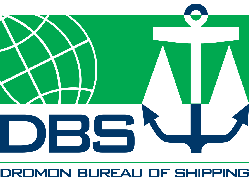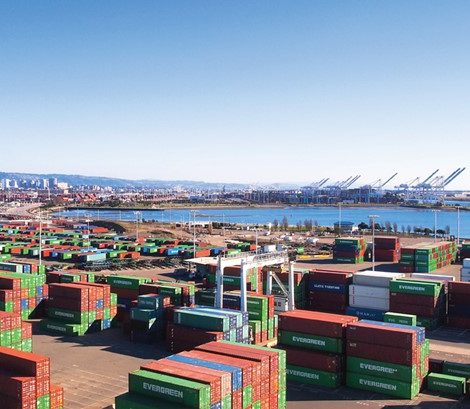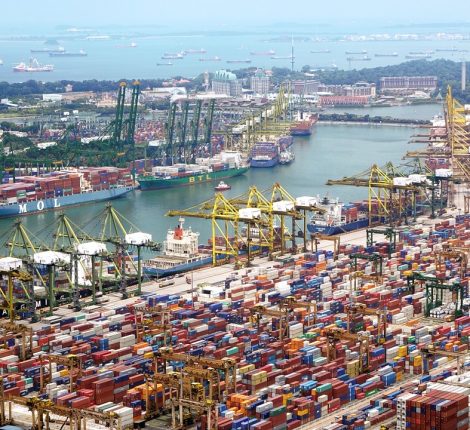- April 12, 2023
- 2023 , Circulars
- Comments : 0
Electronic Record Keeping Systems – BMSR
C23020 | 12 April 2023
Notice to: Ship Owners/ Managers/ Operators
The Barbados Maritime Ship Registry has issued Bulletin-332, to provide guidance on the use of electronic record keeping systems, including logbooks and record books, on board ships registered in Barbados. The Bulletin and this emanating Circular should be read in conjunction with International Maritime Organization (IMO) Resolutions A.813(19) & A.916(22) and IMO Circular MSC/Circ.982.
1. Categorization of Electronic Records
1.1 Barbados Maritime Ship Registry legislation and other relevant International Conventions require that specific actions, events, and operations be recorded in a logbook or record book held on board the ship. Barbados Maritime Ship Registry (BMSR) recognizes and encourages the growing use of electronic record keeping systems on ships, including logbooks and record books. Hence, the use of electronic record keeping systems for the recording of information required by national legislation and International Conventions is permitted, subject to compliance with Bulletin-332 and type approvals allowed by Class.
1.2 For the purposes of the content of Bulletin-332, electronic records are categorized as:
(a) “Official” records required by Barbados legislation or international Conventions and Codes.
(b) “Unofficial” records that are not required by national legislation or international Conventions and Codes but are commonly used.
1.3 The following official records may be maintained in an electronic record keeping system:
(a) Barbados Official Logbook Part I;
(b) Articles of Agreement or Seafarer’s Employment Agreements;
(c) Records required by Regulation 17 of Chapter IV of SOLAS;
(d) Records required by Regulation 28 of Chapter V of SOLAS;
(e) Ballast Water Record Book;
(f) Compass Error Book
Records required under Annexes I, II, V and VI of MARPOL may also be kept electronically (subject to section 5 of Bulletin-332.)
1.4 The following unofficial records may be maintained in an electronic recording system:
(a) Bridge logbook (also known as Deck Logbook)
(b) Engine room logbook
(c) Biofouling Record Book
2. General Requirements for Electronic Record Keeping Systems
2.1 This section outlines the requirements for electronic record keeping systems that are intended to replace paper records of actions, events, and operations on board.
2.2 Electronic record keeping systems used to record official records must capture the information required to be recorded in paper logbooks and record books by the relevant legislation or international Convention.
2.3 The minimum requirements for electronic record keeping systems are as follows:
2.3.1 Electronic Record Keeping System Workstation:
The workstation should consider relevant ergonomic design criteria such as provided for in MSC/Circ.982.
2.3.2 Updating of Software:
(a) Arrangements for software replacement, update or upgrade should be effectively implemented under a documented system.
(b) The Company is responsible for ensuring that electronic record keeping systems are maintained to the latest standards required by BMSR or the relevant international Conventions.
2.3.3 Client/Server Installation
Where the system can support a client/server installation, the server should be capable of recording data from clients using multiple workstations simultaneously.
2.3.4 Minimum Data Reporting & Exporting Requirements:
(a) The system must be capable of reproducing records in hard copy (i.e., printed out).
(b) The system must be capable of producing reports in PDF format.
(c) Where data export is provided, the system should allow the data to be exported to another system in XML or other internationally standardized format.
(d) Nothing within the system, or the contractual arrangements between the Company and equipment supplier, shall prohibit the provision of information to duly authorized officers of an Administration, inspectors, surveyors, auditors, investigators, etc. relating to the discharge of their duties.
2.3.5 Recording of Entries
(a) All users must have a unique username and password for accessing the system, or other form of login that is unique for each user;
(b) The identity of the user making entries into the system must be clearly identified;
(c) Where automated recording of navigational and machinery events is featured, the electronic bridge or engine room log book or data logger must be able to record relevant events, along with the necessary inputs, in real time.
(d) All entries must have a stamp or input with date and time (UTC and local time on board);
(e) The system must not allow the deletion of any entries. Any subsequent amendments or corrections to an entry must be clearly identifiable (e.g., by crossing through the original entry with a line) and show the identity of the user making the amendment or correction;
(f) The system must be capable of electronically registering the signature or endorsement of the Master and other responsible Officers on all relevant entries.
2.3.6 Back Up and Recovery of Entries:
(a) The power supply to the system should be fed from both the main and emergency source of power;
(b) The system should be capable of making secure copies or backups of the entries to ensure that the information will not be lost if the system fails.
(c) The system must be able to recover data from copies or backups.
(d) The system should be able to export all entries to a standard removable storage device, such as a USB memory stick.
(e) Official records shall be retained by the system for at least the minimum period specified in the relevant legislation or international Conventions – a guide to retention periods is provided in the Annex.
(f) Unofficial records shall be retained by the system for the period established by the Company.
3. Requirements for Specific Records
3.1 Official Log Book Parts I & II:
3.1.1 The Shipping Act does not specify that the Official Log Book has to be a hard (paper) copy, only that a log book is kept and that specific entries are recorded, as listed in the Shipping Act 1994, as amended.
3.1.2 Accordingly, information that is normally recorded in the Official Log Book Part I or Part II may be maintained in an electronic record keeping system, provided that all information required in the relevant section of the hard copy Official Log Book Parts I and/or II is recorded.
3.1.3 Any information in a section of the Official Log Book Parts I and/or II that is not recorded in an electronic record keeping system must be maintained in a hard copy Official Log Book.
3.1.4 In cases where some information is in a hard copy Official Log Book and some is in an electronic record keeping system, the hard copy Official Log Book shall contain a statement indicating where the information recorded electronically is stored.
3.1.5 All sections of the Official Log Book that are maintained electronically must be capable of being printed out in the same layout as the hard copy Official Log Book and exported in PDF format.
3.1.6 Printed pages must be signed by the Master as a true and complete copy of the corresponding entries in the electronic record keeping system.
3.2 MARPOL Annex I – Oil Record Book Parts I & II:
3.2.1 Oil Record Book Parts I & II may be kept in electronic format, provided that:
(a) Entries cannot be deleted.
(b) Any changes to existing entries are clearly shown, along with the identity or electronic signature of the person that made the change.
(c) The system is auditable.
(d) The record, including any changes, is printed out weekly and the hard copy physically signed by the Master and Chief Engineer.
(e) The weekly printed pages are in the format specified in the Convention for the Record Book; and
(f) The weekly pages can be exported in PDF format.
(g) Printed Pages are to be maintained onboard for the period noted in MARPOL and the annex of this bulletin.
3.3 MARPOL Annex II – Cargo Record Book for Ships Carrying Noxious Liquid Substances in Bulk
3.3.1 The Cargo Record Book for Ships Carrying Noxious Liquid Substances in Bulk may be kept in electronic format, provided they meet items i. to vi. in paragraph 4.2.1.
3.4 MARPOL Annex V – Garbage Record Book Parts I & II:
3.4.1 Garbage Record Books Part I & II may be kept in electronic format, provided they meet items i. to vi. in paragraph 5.2.1.
3.5 MARPOL Annex VI Record Book:
3.5.1 Records required under MARPOL Annex VI may be kept in electronic format, provided they meet items i. to vi. in paragraph 5.2.1.
3.5.2 MARPOL VI records may also be kept in the engine room log.
3.6 Crew Management System:
3.6.1 Where electronic management of crew articles is enabled, the system should be capable of recording information relevant to the crew list, including the following:
(a) Full name of crew member;
(b) Home address;
(c) Age;
(d) Place of Birth;
(e) Nationality;
(f) Passport Number;
(g) Next of Kin;
(h) Position on board;
(i) Certificate of Competency details;
(j) Place and date of embarkation;
(k) Place and date of disembarkation.
4. BMSR Approval of Electronic Record Keeping Systems
4.1 When a Company selects an electronic record keeping system for use on a ship registered in Barbados, the Company shall apply to BMSR for approval and provide the following information:
(a) Name and Official Number of all ships that will have the system installed.
(b) A statement from the Company confirming the following:
I. The installed system complies with the specific requirements set out in Bulletin-332.
II. The crew has been appropriately trained in the management, use and operation of the system, in compliance with Regulation I/14.1.4 of the STCW Convention.
III. The routines and processes for the conservation and maintenance of the entries in the system comply with relevant requirements and guidance and procedures for data entry, extraction and retention are incorporated in the Safety Management System.
(c) A list of logbooks and record books that will have their entries captured in the electronic record keeping system.
(d) The system manufacturer’s declaration specifying that the system is installed according to approved existing requirements and that the installed system has been tested and is operating correctly.
4.2 On satisfactory review of the information provided, BMSR will issue a Letter of Approval for Electronic Record Keeping Systems for each ship using the system.
4.3 The Letter of Approval will list the official records permitted to be stored by the system and must be kept on board each ship using the system, for presentation to duly authorized officials when requested.
4.4 Each Letter of Approval for Electronic Record Keeping Systems will be valid for five (5) years from the date of issue and will be subject to the ship being managed by the Company noted on the approval letter.
4.5 The Company is to notify BMSR of any changes to the system or the procedures related to its use in the Safety Management System that affects the Letter of Approval.
4.6 The availability of the Letter of Approval will be verified at Flag annual inspections.
5. Provision of Data to New Managers or Owners
5.1 The international Conventions require certain records to be retained by the ship for specified periods, as indicated in the Annex.
5.2 Accordingly, Companies using electronic record keeping systems must provide the relevant records to the new Company, that cover the required minimum retention period.
5.3 The records may be provided as:
(a) a PDF or XML file; or
(b) printed out; or
(c) in a data format that can be used by the new Company’s system.
5.4 In all cases, the ability to present the records to duly authorized officers upon request must be available on board the ship.
6. ANNEX – Retention Periods for Entries
6.1 The following table provides minimum retention periods for official records.

Act now
Ship Owners/ Managers/ Operators should take into consideration all the above and adhere to the requirements, paying special attention to:
- Points 1.3 and 1.4, detailing which documents are considered official and which unofficial.
- The minimum requirements as detailed in point 2.3.
- Requirements for Specific Records, detailed in paragraph 3.
- The need for approval by BMSR in case a company chooses to implement an Electronic Record Keeping System, as of paragraph 4.
- Provision of Data to New Managers or Owners, paragraph 5.
- The minimum retention periods for official records, as detailed in the above ANNEX.





